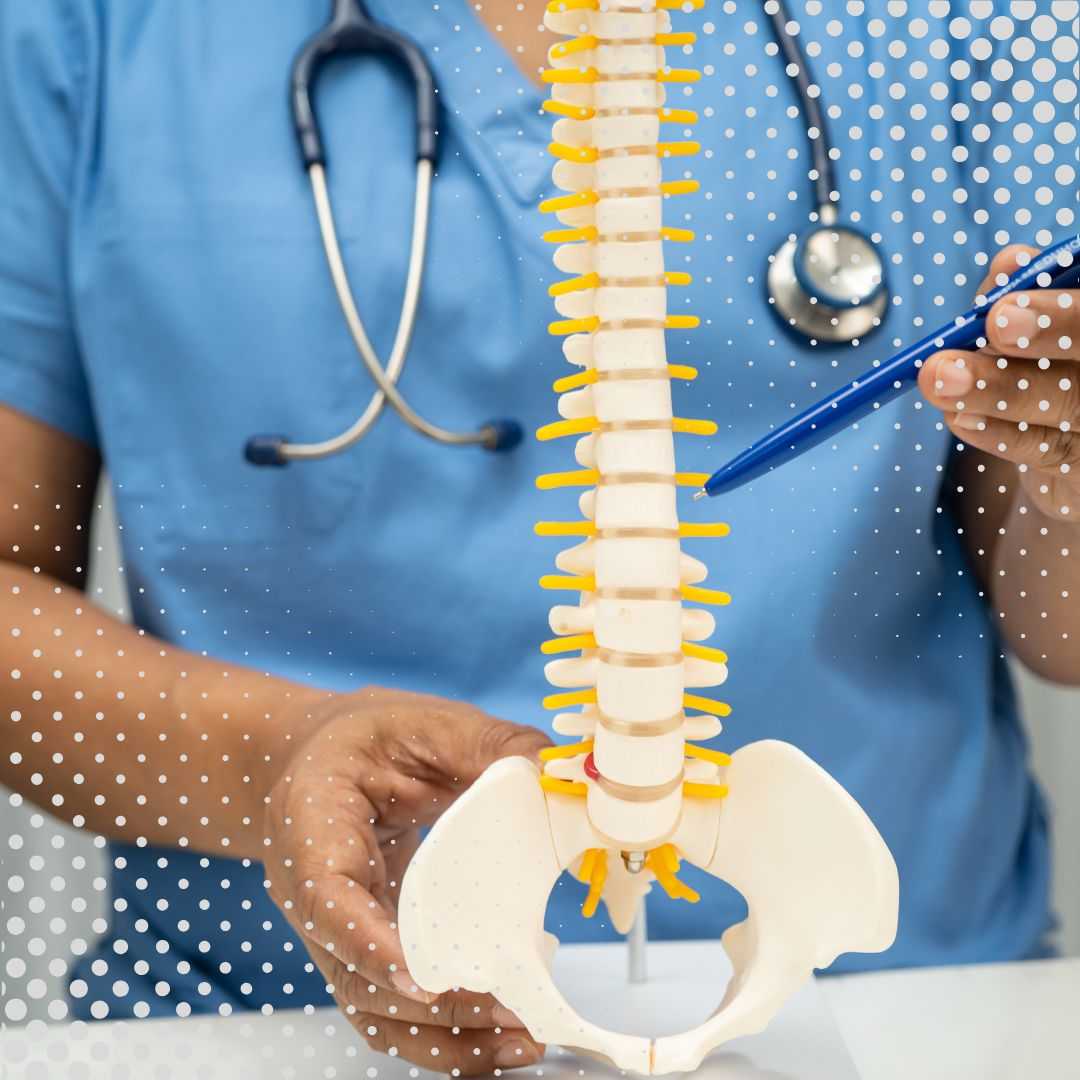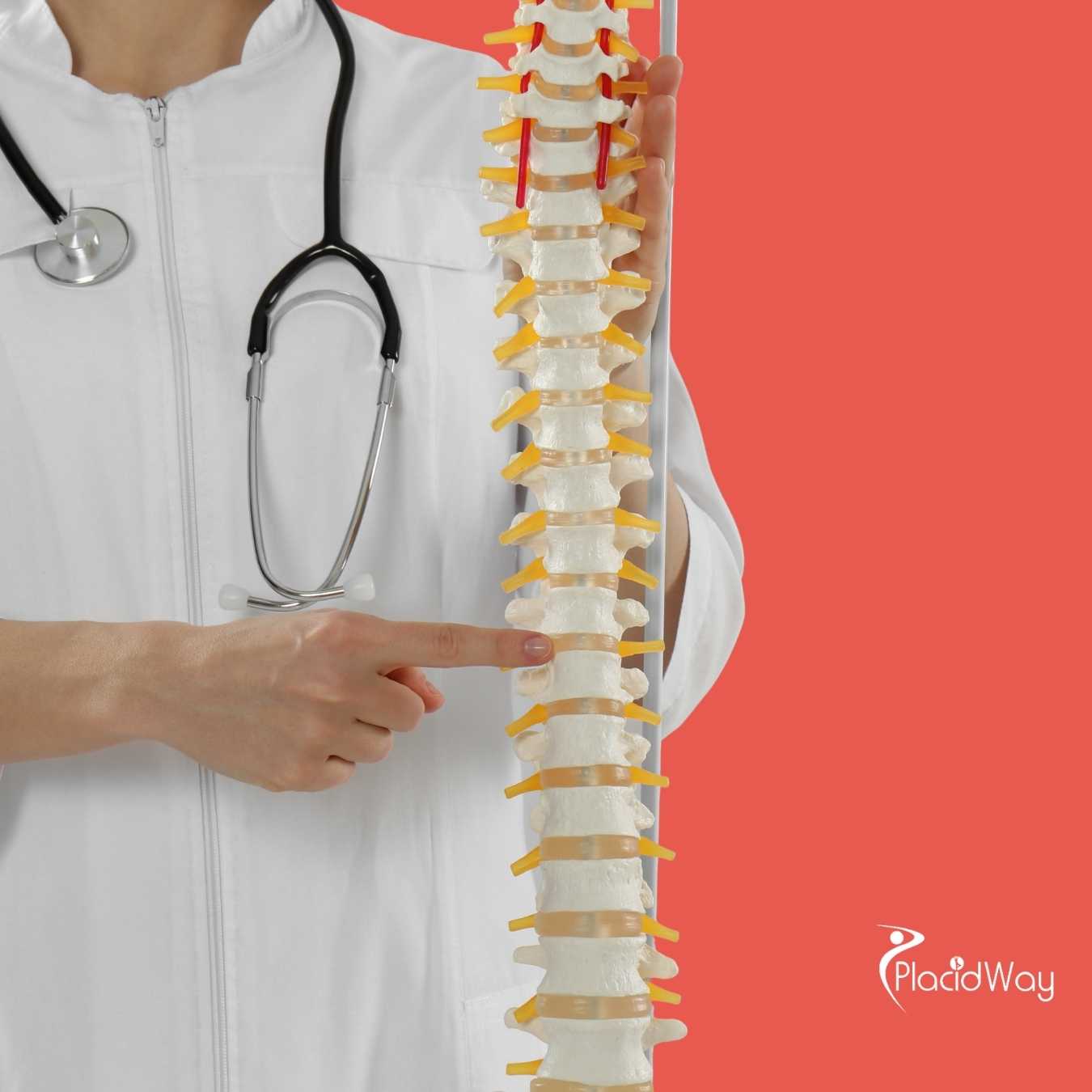Vasculitis and Stem Cells: The Emerging Path to Long-Term Remission
.png)
Welcome to an in-depth discussion about vasculitis and the evolving role of stem cell therapy. If you or someone you care about lives with this challenging condition, you're likely searching for answers and hopeful solutions. Vasculitis is a group of rare autoimmune diseases characterized by inflammation of the blood vessels, which can lead to restricted blood flow, organ damage, and a wide range of debilitating symptoms. Managing vasculitis often involves powerful immunosuppressants, but these come with their own set of side effects and don't always offer a complete resolution.
This is where the potential of stem cells comes into play, sparking significant interest and hope. The idea that these remarkable cells could offer a new way to combat the underlying mechanisms of vasculitis—by calming an overactive immune system and repairing damaged tissues—is truly compelling. While it's important to approach these discussions with realistic expectations, understanding the current state of research and therapeutic applications for stem cell treatment for vasculitis can empower you with valuable knowledge. Let's explore whether stem cells can indeed offer a cure or significantly improve the lives of those affected by vasculitis.
What Exactly is Vasculitis?
Vasculitis isn't a single disease but rather a group of conditions that share a common characteristic: inflammation of the blood vessels. This inflammation can affect arteries, veins, and capillaries of any size, from the largest artery (aorta) to the tiniest capillaries. When blood vessels become inflamed, they can narrow, thicken, weaken, or scar. This restricts blood flow to organs and tissues, leading to a wide array of symptoms and potential organ damage.
As an autoimmune disease, vasculitis occurs when the body's immune system mistakenly attacks its own blood vessels. The symptoms vary widely depending on which vessels are affected and which organs are deprived of blood. Common symptoms can include fever, fatigue, weight loss, muscle and joint pain, and specific issues related to affected organs such as kidney failure, lung problems, skin rashes, or nerve damage. Diagnosis often involves blood tests, imaging scans, and biopsies of affected vessels or organs. Understanding the precise type of vasculitis is crucial for guiding conventional treatments, which typically involve corticosteroids and other immunosuppressive drugs to control inflammation and suppress the immune response.
How Do Stem Cells Interact with Vasculitis?
The interaction between stem cells and vasculitis is multifaceted and offers a novel approach to treatment. Unlike traditional immunosuppressants that broadly suppress the immune system, certain types of stem cells, especially Mesenchymal Stem Cells (MSCs), possess unique properties that allow them to modulate the immune response more intelligently. When introduced into the body, MSCs can home in on areas of inflammation and tissue damage.
Once at these sites, MSCs release a variety of bioactive molecules that:
- Reduce Inflammation: They can suppress the activity of pro-inflammatory immune cells and promote the activity of anti-inflammatory cells, helping to calm the immune system's attack on blood vessels.
- Modulate Immune Response: MSCs can re-educate overactive immune cells, encouraging a more balanced and tolerant immune environment, which is crucial in autoimmune diseases like vasculitis.
- Promote Tissue Repair: Beyond immune modulation, MSCs secrete growth factors and other regenerative molecules that support the repair of damaged blood vessels and surrounding tissues, potentially restoring some lost function. This regenerative capacity is a key differentiator from conventional therapies.
This dual action of immune modulation and tissue repair makes stem cell therapy a promising avenue for addressing both the cause and effects of vasculitis.
What Types of Stem Cells Show Promise for Vasculitis Treatment?
When considering stem cell therapy for vasculitis, the focus is largely on two main types of stem cells, with Mesenchymal Stem Cells (MSCs) leading the research interest due to their exceptional properties. MSCs can be sourced from various tissues, including bone marrow, adipose (fat) tissue, umbilical cord blood, and placental tissue. Their appeal stems from their ability to be easily isolated, expanded in culture, and their potent immunomodulatory and anti-inflammatory effects.
MSCs work by interacting with various immune cells, reducing inflammation, and promoting tissue regeneration. They don't typically cause immune rejection, meaning they can sometimes be used from a donor without significant matching requirements. In contrast, Hematopoietic Stem Cells (HSCs) are also being explored, primarily in more severe and refractory cases of autoimmune diseases. HSCs, typically found in bone marrow, are responsible for generating all types of blood cells, including immune cells. High-dose chemotherapy followed by an autologous HSC transplant (using the patient's own cells) aims to reset the immune system. This is a more intensive procedure, usually reserved for aggressive forms of vasculitis where other treatments have failed, due to the significant risks involved.
Are Stem Cells a Definitive Cure for Vasculitis Today?
It's crucial to set realistic expectations: stem cells are not yet considered a definitive cure for vasculitis in the way antibiotics cure a bacterial infection. While the term "cure" implies a complete and permanent eradication of the disease, stem cell therapy for vasculitis is currently viewed as an advanced, experimental treatment that aims to achieve significant improvements, prolonged remission, and better disease management.
The goal of using stem cells in vasculitis treatment is to:
- Reduce the severity and frequency of flare-ups.
- Decrease inflammation in blood vessels and affected organs.
- Lessen the reliance on conventional immunosuppressive drugs, thereby reducing their side effects.
- Potentially repair some of the damage already caused by the disease.
While some patients experience remarkable improvements and long periods of remission after stem cell treatment, the long-term efficacy and potential for a complete cure are still under extensive investigation. Research is ongoing to better understand how to optimize dosages, timing, and cell types to maximize therapeutic benefits and move closer to more definitive solutions.
What Does Current Research Say About Stem Cells and Vasculitis?
The scientific community is actively exploring the potential of stem cells in managing autoimmune diseases, including vasculitis. Research spans from laboratory studies to small-scale human clinical trials, consistently highlighting the immunomodulatory and regenerative capabilities of these cells. Preclinical studies using animal models of vasculitis have shown that administration of MSCs can significantly reduce inflammation, decrease vessel wall damage, and improve overall disease markers.
In early-phase human clinical trials, particularly with refractory or severe forms of vasculitis, patients receiving stem cell treatment have demonstrated promising outcomes. These include:
- Reduction in disease activity scores.
- Lower levels of inflammatory biomarkers in the blood.
- Decreased need for conventional immunosuppressive medications.
- Improved quality of life and reduction in symptoms like pain and fatigue.
While these results are positive, most studies are still small, uncontrolled, or in early stages. Large, randomized controlled trials are needed to definitively establish the efficacy, long-term safety, and optimal protocols for using stem cells for vasculitis. The field is rapidly advancing, with new insights emerging regularly, keeping the hope for future therapeutic breakthroughs alive.
What are the Potential Risks and Side Effects of Stem Cell Therapy for Vasculitis?
Like any medical procedure, stem cell therapy for vasculitis carries potential risks and side effects, though generally considered to be low, especially when performed in reputable clinics following strict guidelines. It's important to be aware of these before considering treatment. The risks can largely be categorized into those related to the procedure itself and those related to the cells being administered.
Potential risks and side effects include:
- Infection: Any procedure involving injections or cell harvesting carries a slight risk of infection at the site of administration or extraction. This risk is minimized by stringent sterile techniques.
- Allergic Reaction: Though rare, patients can have an allergic reaction to the cellular product or other components used during the preparation or administration.
- Tumor Formation: This is an extremely rare concern, primarily associated with certain types of embryonic or induced pluripotent stem cells (iPSCs) that have not been adequately differentiated. The MSCs typically used for vasculitis treatment have shown a very low risk of tumor formation in studies.
- Procedure-Related Complications: If cells are harvested from bone marrow or fat tissue, there can be minor pain, bruising, or bleeding at the harvest site. Intravenous administration is generally well-tolerated, but some patients might experience temporary fever, chills, or headache.
Reputable clinics prioritize patient safety by adhering to strict protocols for cell processing, quality control, and administration, significantly reducing the likelihood of adverse events. Open communication with your medical team about any concerns is always encouraged.
Can Stem Cells Repair Organ Damage Caused by Vasculitis?
One of the most devastating consequences of untreated or poorly controlled vasculitis is the irreversible damage it can inflict on vital organs due to prolonged inflammation and restricted blood flow. This damage can range from kidney failure and lung fibrosis to nerve damage and skin ulcerations. The regenerative capacity of stem cells, particularly MSCs, offers a beacon of hope in mitigating and potentially reversing some of this damage.
Stem cells contribute to tissue repair through several mechanisms:
- Anti-fibrotic Effects: They can help prevent or reduce the formation of scar tissue, which often replaces functional tissue after chronic inflammation. By modulating the local environment, MSCs can promote a more favorable healing response.
- Angiogenesis: Stem cells can stimulate the formation of new blood vessels (angiogenesis) in areas where blood flow has been compromised. This re-establishes circulation and brings vital oxygen and nutrients to damaged tissues, aiding in their recovery and function.
- Growth Factor Secretion: They release a plethora of growth factors and cytokines that support the survival, proliferation, and differentiation of native cells, encouraging the repair and regeneration of damaged tissue structures.
While complete reversal of severe, long-standing organ damage may be challenging, stem cell therapy has shown promise in improving organ function and preventing further deterioration, offering a pathway to better health outcomes for patients with vasculitis.
Why Consider Medical Tourism for Stem Cell Therapy for Vasculitis?
The decision to pursue stem cell therapy for vasculitis often leads patients to consider medical tourism. Several compelling reasons drive this choice. Firstly, many advanced stem cell treatments are still considered experimental or are not yet fully approved in certain countries, particularly in regions with very stringent regulatory environments. This means that patients may have limited access to these potentially life-changing therapies in their home countries, pushing them to seek options abroad where regulations might be different or where specific research protocols are available.
Secondly, cost can be a significant factor. Even if a treatment is available domestically, the expenses can be prohibitive, especially for innovative therapies not covered by insurance. Popular medical tourism destinations known for regenerative medicine often offer these treatments at a fraction of the cost, without compromising on quality or expertise. Thirdly, some international clinics specialize exclusively in stem cell therapy and regenerative medicine, accumulating a wealth of experience and developing sophisticated protocols for conditions like vasculitis. These clinics may offer comprehensive care packages, advanced diagnostics, and personalized treatment plans that attract patients seeking specialized expertise and cutting-edge medical approaches that might not be readily available locally.
What is the Typical Cost of Stem Cell Treatment for Vasculitis in Popular Medical Tourism Destinations?
Understanding the financial aspect is a critical part of planning for stem cell therapy for vasculitis through medical tourism. The cost can vary significantly depending on several factors, making it difficult to provide a single fixed price. However, in popular medical tourism destinations renowned for regenerative medicine, such as Mexico, Germany, or certain clinics in Asia, you can expect the cost for a single treatment cycle to typically fall within the range of $10,000 to $30,000 or even higher for more complex cases or multiple treatment sessions.
Factors influencing the cost include:
- Clinic Reputation and Expertise: Highly specialized clinics with extensive experience in stem cell treatment for vasculitis and internationally recognized experts may charge more.
- Type and Source of Stem Cells: Whether the treatment uses autologous (patient's own) or allogeneic (donor) cells, and their source (bone marrow, adipose tissue, umbilical cord) can affect cost due to varying harvesting and processing complexities.
- Number of Cells and Dosage: The quantity of stem cells administered and the number of treatment sessions recommended for your specific condition will directly impact the total price.
- Included Services: Some clinics offer comprehensive packages that cover initial consultations, diagnostic tests, follow-up care, accommodation, and translator services, while others might quote only the treatment itself.
It is always recommended to obtain a detailed quote that outlines all services included before committing to a treatment plan abroad.
How Do I Choose a Reputable Clinic for Stem Cell Therapy for Vasculitis Abroad?
Selecting the right international clinic for stem cell therapy for vasculitis is perhaps the most crucial step in your medical tourism journey. Given the experimental nature of some stem cell applications, it's essential to prioritize safety, efficacy, and ethical practices. Here’s a checklist to guide your decision-making process:
- Accreditation and Regulatory Compliance: Verify that the clinic is accredited by recognized international bodies (e.g., Joint Commission International - JCI) and adheres to national and international regulatory standards for cellular therapies. This ensures quality and safety protocols are in place.
- Physician Qualifications and Experience: Research the medical team's credentials. Ensure the doctors have specialized training and extensive experience in regenerative medicine and, ideally, in treating autoimmune conditions like vasculitis.
- Transparency in Treatment Protocols: A reputable clinic will be transparent about the type of stem cells used, their source, the processing methods, administration techniques, and the scientific rationale behind their chosen protocol. They should also clearly explain expected outcomes, potential risks, and the absence of guarantees.
- Ethical Considerations: Confirm that the clinic operates within ethical guidelines concerning stem cell research and application. Avoid clinics making unrealistic claims or promising "miracle cures."
- Patient Testimonials and Support: While testimonials should be viewed critically, they can offer insights. More importantly, gauge the clinic's patient support services, including pre-treatment consultations, during-treatment care, and post-treatment follow-up.
- Customized Treatment Plans: A good clinic will offer a personalized treatment plan based on your specific diagnosis, medical history, and overall health, rather than a one-size-fits-all approach.
Thorough due diligence will help you make an informed and confident decision about your healthcare abroad.
If you or a loved one are exploring advanced treatment options for vasculitis or other complex conditions, PlacidWay can connect you with leading international clinics and specialists offering cutting-edge therapies, including regenerative medicine. Discover personalized healthcare solutions and make informed decisions about your medical journey.


.png)









Share this listing